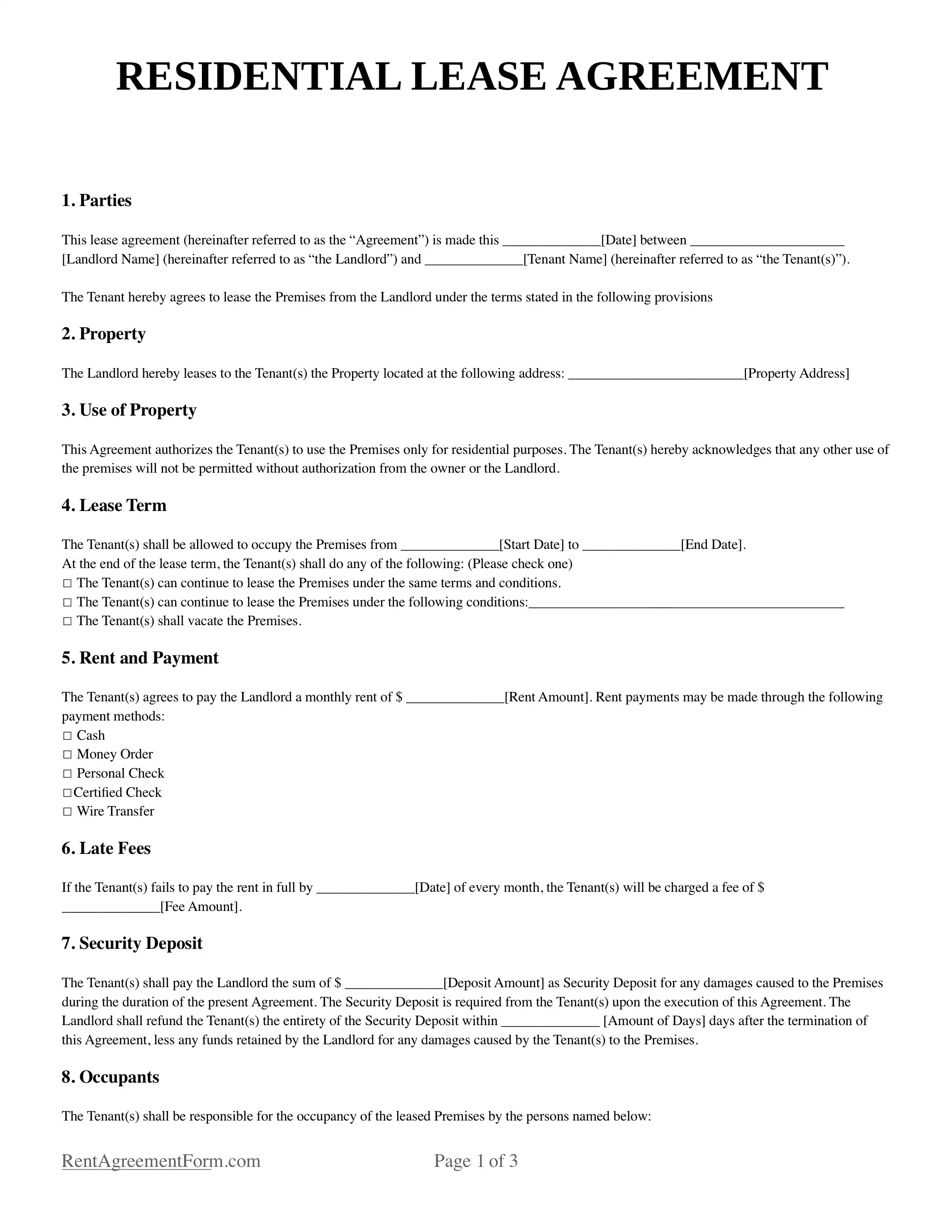Pennsylvania Residential Lease Agreement Form
Anyone who wants to rent a residential property in Pennsylvania will have to submit a complete rental application form for screening and a thorough background check. A successful applicant that passes the screening will become a tenant and must complete a Pennsylvania residential lease agreement form.
The lease agreement is a contract between the landlord and the tenant that outlines all of the details about the rental of a property. Pennsylvania law also has some exceptions when the property in question is a mobile home.
Important details in the lease agreement form include the monthly rent and when it is due. The form also contains conditions like the landlord’s responsibility to provide a safe and secure home for the tenant, who is also obliged to take care of the property throughout their stay.
The lease agreement form also declares the other occupants of the property and if the tenant has children or pets.

Required Disclosures
- Lead-Based Paint - The landlord must disclose to tenants if the rental property was built before 1978. That year, the U.S. passed a law banning the use of lead-based paint in buildings. The landlord must also provide pamphlets about the health hazards of lead (Lead-Based Paint Disclosure Rule (Section 1018 of Title X)).
- Mold and Other Material Defects - It is the right of the tenant to know if there are molds and defects in the property. The landlord is obliged to inform the tenant about any lingering issues. The tenant may list down all noted defects they uncover to make sure they will not be charged for them at the end of the tenancy.
- Utility Issues - If the landlord is responsible for paying utility services, which will then be charged to the tenant on top of the rent, they should pay on time. If not, and there is a notice of disconnection from the utility company, the tenant should be informed.
Rent Grace Period
There is no grace period under Pennsylvania law. If it has been ten days since the rent’s due date and the tenant still hasn’t paid, they can be considered in default of the lease agreement.
If there is a stipulation for a late fee in the residential lease agreement form, it can be charged ten days after the due date of the monthly rent.
Security Deposit Laws
In Pennsylvania, security deposits are not required from tenants. However, a majority of landlords still collect for their peace of mind. The deposit will be their fallback if the tenant fails to pay rent or if there is damage to the property when the tenant leaves.
The maximum security deposit that a landlord can collect is two months’ worth of rent for the first year and one month’s worth for the succeeding years of renting. The landlord has 30 days to return the security deposit after the lease—the timeline starts on the day the tenant moves out.
Unpaid rent, damage to property, or breach of lease may be deducted from the deposit (Pennsylvania Landlord Tenant Law of 1951).